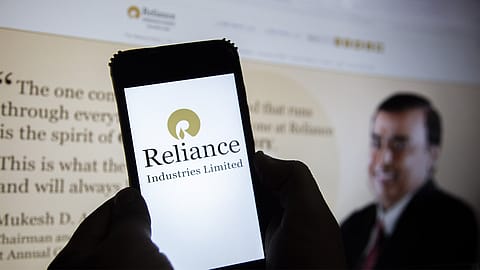Reliance bets on 5G and quick commerce push as petrochemicals business faces headwinds
Despite the high performances of Jio and retail, RIL’s profit has increased by a meagre 2.9% to ₹81,309 crore in FY25.

Billionaire Mukesh Ambani is buckling the boots for a profit-focused game. Reliance Industries Ltd (RIL), the most valued company in India, is weighing its options to value-optimise the infrastructure it created in telecommunication and retail by gradually charging for 5G data services and reviving quick commerce plans. The attempt comes when the refining and petrochemicals business is facing turbulence in the wake of growing geopolitical issues.
Despite the high performances of Jio and retail, RIL’s profit has increased by a meagre 2.9% to ₹81,309 crore in FY25. Reliance Jio faced subscriber reduction when it introduced the new tariff for 5G services. During the Q4 financial presentation, Anshuman Thakur, Head of Strategy, Reliance Jio Infocomm Ltd, said: “The little bit of impact that we saw a couple of quarters ago when tariffs were raised, well and truly back, is behind us and we are now adding subscribers.”
The total subscriber base of Jio increased by 6.1 million in the fourth quarter to 488.2 million. V. Srikanth, CFO, RIL, said that Jio Platforms Ltd (JPL) was up 17% on the back of leadership in technology, the number of customers added, and the average revenue per user (ARPU) increase. Jio, which launched the 5G service a couple of years ago with an investment of ₹2 lakh crore, has migrated 191 million subscribers to the 5G network.
“We have really not started monetising 5G. So effectively, 45% of data that people are consuming today is being offered to them free of cost… They are getting into the habit of consuming content, data, and 5G services. We believe that is a big opportunity,” said Anshuman Thakur.
The fixed wireless stack, which Jio is deploying extensively on the ground, is another growing area where the company has an 85% market share. It aims to connect 100 million homes in the first phase. JioHome has 18 million subscribers and added 1.5 million in the fourth quarter. The AirFiber service has 5.6 million subscribers.
The business of Reliance Retail needs another booster. It has opened 2,659 stores in FY25. However, their net addition is about 500 stores, as they were shutting loss-making stores. “We are pretty much more or less done with the streamlining now,” said Dinesh Taluja, CFO & Corporate Development, Reliance Retail.
“JioMart has three online services. There is an under-30-minute quick service. There is a scheduled delivery, where the assortment is much wider, and then there is a subscription service, where you can subscribe and every day you get, depending on the frequency you choose, we deliver the goods at your home early morning,” said Taluja.
Recommended Stories
He says that the company has re-pivoted the model completely to under-30-minutes delivery. The trigger is surely the rise of Zomato’s Blinkit, Zepto, Swiggy Instamart, and Flipkart Minutes. Quick commerce in India is set to grow 75-100% year-on-year, significantly outpacing traditional retail, said Bernstein in its recent report. The top 40-50 cities in India are collectively accounting for a grocery market worth around $250 billion, and quick commerce is poised to capture a substantial share of this market, said the report.
With a quick commerce dream, Reliance Retail picked up a 25.8% stake in Dunzo by paying $200 million in January 2022. But the country’s largest retailer had to write off its investment in Dunzo following financial struggles earlier this year.
The average daily online orders for JioMart were up 62% on a Y-o-Y basis, said Taluja. “Specifically, our under-30-minute offering, which has the widest network reach. We have almost 2,000-plus stores which are on the network, covering more than 4,000-plus pin codes. So this is much wider reach than any other quick commerce player,” he said.
The consumer brands business is supporting the growth, and it made ₹11,500 crore of turnover during FY25. More than 60% of that comes from general trade of key brands, like Campa and Independence. “We are present across 1 million-plus retail outlets through a network of 3,200-plus distributors,” said Taluja.
(INR CR)
RIL had its gross revenue increased by 7.1% to ₹10,71,174 crore in FY25 as Jio Platforms Ltd (JPL) revenue rose by 16.9% and Reliance Retail Ventures Ltd (RRVL) revenue increased by 7.9%. Revenue from Oil to Chemicals (O2C) improved by 11% because of higher volumes and increased domestic product placement. However, the earnings before interest, depreciation, tax and amortisation (EBITDA) increased marginally by 2.9% to ₹183,422 crore.
Here, JPL’s EBITDA increased by 16.8% and RRVL’s EBITDA increased by 8.6%. The O2C EBITDA reduced by 11.9% to ₹54,988 crore on account of a weak margin environment across transportation fuels and subdued downstream chemical deltas. RIL’s share price fell 11% in the last one year and its market capitalisation stood at ₹17.6 lakh crore.


